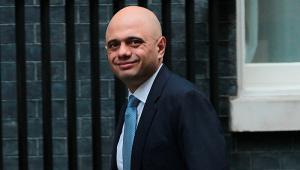Green, also a former Conservative cabinet minister, suggested “the best model for social care” was flat-rate, nationally funded ‘universal care entitlement’, in a report released by the the Centre for Policy Studies today.
“This would involve moving from the existing system – in which the state provides care via local authorities – to a nationally funded model, where the state pays this [flat-rate] set amount for each week or month that an elderly person needs support.
“This would not end councils’ involvement in delivering social care, but would free them of a significant and increasing financial burden – as well as transform the incentives which currently prevent the construction of enough care homes and retirement housing.”
People would be able to top this up privately through a ‘care supplement’, Green added, in his report Fixing the care crisis.
Green, who was in charge of the social care green paper as work and pensions secretary until he resigned in June 2017, also mooted a 1% hike in National Insurance for over-50s as a way to help plug the immediate funding gap for social care.
There will be a funding gap of £2.2bn to £2.5bn in the social care sector in 2019-20, according to a joint report by the House of Commons’ health and local government select committees last year, the MP noted.
A rise in National Insurance, along with taxing the winter fuel allowance and diverting savings from the Spending Review, would create an additional £2.5bn for the social care system, the MP calculated. He believed this would equal a 25% increase in state funding for social care.
The report noted that of over-75s is set to double from the current level of 5.3 million in the next 40 years.
A new scheme for social care would need to be “acceptable to the majority of the public and has political consensus”, the report added.
The National Insurance suggestion sparked anger from Labour’s shadow chancellor John McDonnell who said it was a “tax on getting old”.
We want to hear today a clear statement from the Government that they will reject this call, protect the triple lock, and follow Labour’s call to fund social care properly.
— John McDonnell MP (@johnmcdonnellMP) April 29, 2019
Ian Hudspeth, chair of the Local Government Association’s community wellbeing board, said the report was an “important contribution to the debate”.
“Social care and wider council services provide vital support every day to support people in the lives they want to live.
“But with people living longer and more people with disabilities needing support, increases in costs and decreases in funding, the current system of adult social care is at breaking point, and faces a £3.5bn funding gap by 2025 just to maintain existing levels of provision.”
Miriam Deakin, director of policy and strategy at NHS Providers, said: “While we welcome the broad consensus around increasing the funding for social care, the method of delivering is a political decision for government to make.
“The forthcoming green paper must set out viable options and propose bold action to put social care on the sustainable footing it so desperately needs.”
The social care green paper has been delayed five times since its original publication date of summer 2017. PF recently reported that the delays have been due to a need for “greater consideration” of proposals.











